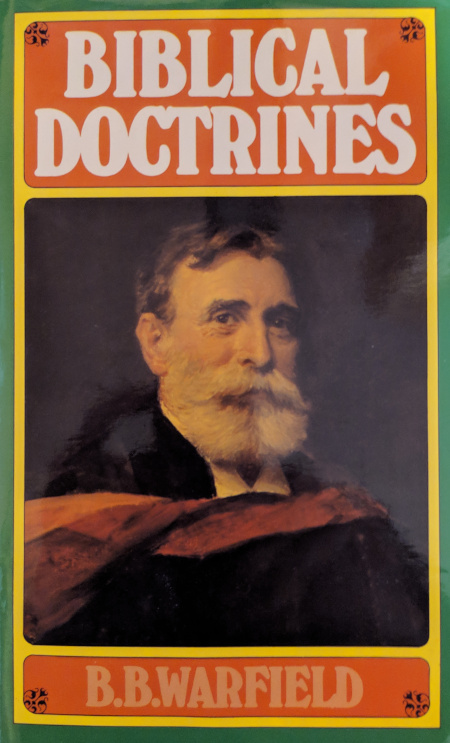The fight for the Trinity
Author: Torsten Ratschat
Originally published in German at www.bibellesewelt.de

“The grace of our Lord Jesus Christ and the love of God and the communion of the Holy Spirit be with you all!“
(2 Corinthians 14:13)
The Motivation
Since I have been working on bibellesewelt.de, I follow the Christian groups’ exchange on Facebook from time to time. One of the topics that often gets hot is the Christian teaching about the Trinity or the Trinity of God.
Proponents and opponents of the Trinity usually do not give themselves anything; the discussion is often very engaged, sometimes highly emotional. A simple “post” about it can lead to hundreds of comments, as happened recently, for example, in a group that has the term “Bible-true” in its name. What one gets to read then is usually not only remarkable in a particular way. Sometimes I rubbed my eyes and was just amazed.
This experience motivates me to deal intensively with this topic once again and – after I had already written the short article “The Triune God” some time ago – to publish another article on this topic on bibellesewelt.de.
Nothing new
First of all, we should not be surprised that this topic is making the waves. After all, it is no less a question than how we have to imagine God – or instead how God has revealed himself.
And the discussion about this is truly nothing new. Already in the time of the apostles, there were fierce arguments about this.
After all, Christianity was in a fight for survival from the very beginning.
The claim of Jesus
Of course, the persecution of Christians by the Jews must first be mentioned in this context, just as the Acts of the Apostles have handed down to us.
Here it must be known that for the Jews the “Hear, O Israel, the LORD is our God, the LORD is one”1 was (and still is) of such central importance that even before the emergence of the first Christian community in Jerusalem, they had had a hard time with Jesus of Nazareth because of his claim.
When Jesus spoke about being the good shepherd, saying “I and the Father are one.“2the Jews wanted to stone him and called out for an explanation: “For the sake of a good work we do not stone you, but for the sake of blasphemy and because you are a man, and make yourself God.“ 3
At first, it had merely occurred to the Jews – which was bad enough for them already – that Jesus could consider himself the Christ, i.e. the Messiah.4 But immediately afterward, they had already understood and recognized exactly that his claim beyond that was actually to be God.
What please is the topic?
And that is precisely what it is! This is exactly the point that has been the focus of attention ever since!
Under the magnifying glass, the central question is if we still argue about the doctrine of the Trinity today: Who is Jesus? Is he God? And if he is God – how does it fit together that according to the law and the prophets, there is only one God called JHWH in hundreds of places in the Tanach, the Hebrew Bible?
When then at Pentecost, as announced by Jesus5, the Holy Spirit was poured out on his followers in Jerusalem, and his work – also in the time following – showed itself with great power, the question of how the Holy Spirit was to be classified additionally arose.
This made the whole discussion for the first Christians only superficially more complicated. Why? Because the Christians had not only come to know salvation and salvation through Jesus Christ but had also experienced the outstanding work of the Holy Spirit on themselves.
They did not need a textbook or theological essay on the Trinity. For they had become living witnesses of it! And so we find no systematic treatise on the Trinity doctrine in the New Testament either. Nevertheless, this doctrine still bubbles up here and there.
The term “Trinity” is not in the Bible. Nevertheless, the content described by it is profoundly biblical.
Therefore, we cannot read the New Testament without stumbling over this biblical truth again and again.
The content
Now, what does the doctrine of the Trinity contain?
The great reformer Johannes Calvin (1509 – 1564) had worked for almost 25 years of his life on his “Institutio Christianae Religionis”, i.e. on his work “Teaching the Christian religion”.6 Calvin had a sharp mind and was a gifted theologian. With his “Institutio” he created one of the most outstanding systematic works of the Reformation, which has been repeatedly reprinted and published up to the present day. Therefore, one can rightly claim that this title has set standards. His article on the Trinity contained in the “Institutio” is still regularly referred to today.
In it Calvin writes:
“But God still determines his being by a unique characteristic feature, which enables us to distinguish him more exactly from all idols. He makes it known that he is the One, but in such a way that he wants to be regarded differently in three persons. 7
“For the nature of God is one and indivisible…” 8
“But if one says that in the one being of God there is a Trinity of persons, then one pronounces in one sentence what the Scriptures teach 9
“But if we now hold fast to what has been sufficiently proved by Scripture above, namely, that the nature of the one God is simple and indivisible, and that it belongs to the Father, the Son and the Spirit (equally), that the Father, in turn, differs from the Son by a certain peculiarity, and the Son from the Spirit – then the entrance is barred to Arius and Sabellius and to all former false teachers. 10
“For it is foolish to invent a continuous creation after it is clear that God has been three persons from eternity! 11

Photo by Egor Myznik on Unsplash
Another outstanding theologian, Benjamin Breckinridge Warfield (1851-1921), Rector of the renowned Princeton Theological Seminary, summarized the Trinity in the following sentence: “When we have said these three things, then – that there is but one God, that the Father and the Son and the Spirit is each God, that the Father and the Son and the Spirit is each a distinct person – we have enunciated the doctrine of the Trinity in its completeness.12
Not taken out of thin air
Of course, these two men – as well as those who wrote about the Trinity in the tremendous confessional writings – did not merely think up this doctrine.
No, instead, they have thoroughly researched the Bible, and in their work they have written down the evidence and arguments for the Trinity in an understandable way. Both works are available on the Internet for interested readers and promise a significant gain to those who take the trouble to follow their explanations. 13
History Puzzle
The formation of the doctrine of the Trinity developed over several centuries and culminated in 381 AD at the 1st Council of Constantinople in the formulation of the Niceno-Constantinopolitanum. This creed, which emphasizes the doctrine of the Trinity in a particular way, is still recognized today by the Western and all Orthodox Churches.
… and their reasons
Why did it take so long? Why was this teaching not immediately formulated and available in the early church?
I have already hinted at the explanation for this. Warfield explains that the revelation of the Trinity was not in words but deeds: In the incarnation of God the Son and the outpouring of God the Holy Spirit. 14
The increasing implementation of God’s great plan of salvation and salvation led to the fact that the Old Testament revelation of God (YHWH) was not corrected by the New Testament, but only increasingly perfected, expanded and enlarged. 15
The New Testament, as already explained, is built on the assumption of the Trinity; the allusions in this regard, as well as the allusions to the Triune God, are frequent, simple and certain.16 For the first Christians, therefore, the Trinity was not a question but a certainty.
While the people of Israel worshipped the only true God under the name of YHWH (Jehovah, Yahweh), they, the Christians, worshipped the same God under the name of the Father, the Son and the Holy Spirit.
For Jesus himself had commanded the apostles: “Go therefore and teach all nations, baptizing them in the name of the Father and of the Son and of the Holy Spirit.“ (Matthew 28:19)
He had not said “in the names” or “in the name of the Father and in the name of the Son and in the name of the Holy Spirit. 17

The Attacks
This instruction of Jesus alone, which is also known as the baptismal command, was such a thorn in the side of the opponents of the doctrine of the Trinity that they attacked this verse with every possible means. This went so far that they called it a forgery that was subsequently smuggled into the Bible. 18
Of course, the pious Jews were primarily interested in the person of Jesus of Nazareth. Jesus could not be the Messiah in their eyes. They could not accept that he was the Son of God. And the Son of God could, under no circumstances, be God, the Son. That is why the discussion about Jesus himself, his condemnation and crucifixion, and the subsequent persecution of Christ’s followers.
Seducer
But in the row of the opponents of the Trinity and thus in the long run of Christianity, soon still others placed themselves.
They came from inside and outside. Already quite early, the apostles had to warn the still young churches about them.
Thus Paul wrote to the Galatians: “There are only some who confuse you and want to pervert the gospel of Christ.“ 19
And Judas warned: “For some people have crept in, about whom judgment has long since been written: they are godless, they turn the grace of our God into the opposite, into debauchery, and deny our sole ruler and Lord Jesus Christ.“ 20
… and heresies
From the Greek-philosophical environment, various pseudo-Christian teachings were formed, designated by Gnossis or Gnosticism (= knowledge teachings). “O Timothy! Preserve what is entrusted to you, and avoid the unspiritual loose chatter and bickering of the falsely so-called knowledge, (21) which some proclaim; they have strayed from faith. Grace be with you,” urges the apostle Paul to his disciple and comrade-in-arms, warning him against such philosophical intellectuals and false teachers. 21
Man and God
And yet another mysterious aspect of Jesus Christ attracted heretics in droves: The two (unmixed) natures of Jesus, that is, the fact that Jesus is wholly man and wholly God. In the mini-series “Jesus – God or Man?” I had already reported in more detail about this biblical teaching.
The following statements of the apostle John, for example, can be seen in the examination of the two natures of Jesus:
“Beloved, do not believe every spirit, but test the spirits whether they are of God, for many false prophets have gone out into the world. (2) By this you can know the Spirit of God: Every spirit that confesses that Jesus is the Christ who came in the flesh is from God; (3) and every spirit that does not confess Jesus in this way is not from God; rather, it is the spirit of the antichrist, of whose coming you have heard and who is already in the world. 22
“For many deceivers have gone out into the world, not confessing that Jesus Christ has come in the flesh. This is the deceiver and the Antichrist.” 23
Subordination
The opponents of the Trinity have also focused on another point: Since Jesus would be subordinate to his Father and the Holy Spirit would be at the service of the Father and the Son, this alone would prove that Jesus and the Holy Spirit were not on an equal footing with the Father and thus the Trinity doctrine was to be rejected.
Paul makes an important statement in the Epistle to the Philippians, which gives us a quite strong hint in this question, too: “Such attitude dwells in all of you, as it was also present in Christ Jesus; (6)for, although he is God’s form [divine form of being, or nature], yet he did not regard equality with God as robbery to be held by force; (7)no, he emptied himself (of his glory) by taking on the form of a servant, entering wholly into human nature and being invented in his bodily constitution as a man; (8)he humbled himself and became obedient unto death, yes, unto death on the cross.“ 24
Without a doubt, Jesus subordinated himself to the will of his heavenly Father in his life and work on earth. However, as this Bible passage shows, it is also a fact that he consciously and voluntarily took his role in God’s great plan and humbled himself. From this, however, it cannot be deduced that he is of lesser importance or even of a different nature than the Father. 25
The rock in the surf
In the first centuries after Christ, many heresies and sects emerged. In dealing with them, the doctrine of the Trinity was finally formulated in the various confessional writings as we still know it today.
The accusations against the doctrine of the Trinity and thus ultimately against the testimony of the Holy Scriptures are the same today as they were in the first centuries of Christianity. These false doctrines may now call themselves different than before. But if you examine them more closely, you will soon find that they do not contain anything new.
Moreover, the intensity of attacks in our days is similar to that of those days. The living Son of God, Jesus Christ, was and is for many “a stone of offence and a rock of annoyance. 26
However, all this cannot harm the Bible and thus the authority of the Word of God; Christ himself is our rock in the surf.
Therefore, the following will continue to apply: As Christians, we may, can and should stand firmly and confidently on this foundation of faith and courageously defend it.
Bibliography:
Calvin, Johannes (2009): Unterricht in der christlichen Religion. Institutio Christianae Religionis. 2nd edition. Neukirchen-Vluyn: Neukirchner Verlag
A standard work and classic of the great reformer.
Lloyd-Jones, D. Martyn (2000): Gott der Vater. Friedberg: 3L Verlag.
First volume from a very good series of lectures/sermons on the foundations of faith. In the original, i.e. in English, undoubtedly even better!
Lloyd-Jones, D. Martyn (2001): Gott der Sohn. Friedberg: 3L Verlag.
Second volume of the above lecture/sermon series.
Warfield, Benjamin B. (2002): Biblical Doctrines. First published 1929. reprinted 2002. Edinburgh: The Banner of Truth Trust
Collection of challenging articles about biblical teachings for readers with good English skills.
Bible verses quoted and translated from:
Luther Bible, revised 2017, © 2016 Deutsche Bibelgesellschaft, Stuttgart
and
Menge Bibel, last text version edited by Menge from 1939
Originally published in German at www.bibellesewelt.de
Footnotes
1 Genesis 6, 4
2 John 10, 30
3 John 10, 33
4 see John 10, 24 – 26
5 see Luke 24, 49; Acts 1, 4 f. + 8
6 see Calvin 2009: page 9
7 ibidem: page 64
8 ibid.
9 ibidem: page 67
10 ibid.: page 77
11 ibidem: page 84
12 Warfield 2002: Page 147
13 see www.calvinismus.ch (in German) and http://scriptoriumdaily.com/warfields-the-biblical-doctrine-of-the-trinity-annotated/
14 see Warfield 2002: page 144
15 see also ibidem: page 142
16 see ibidem: page 143
17 cf. ibidem: page 153 ff.
18 cf. ibidem: page 155 f.
19 Galatians 1, 7
20 Judas 4
21 1 Timothy 6, 20 f.
22 1 John 4, 1 – 3
23 2 John 1, 7
24 Philippians 2, 5 -8 (quantity translation)
25 see also ibid.: pages 166 – 168
26 Isaiah 8, 14 and 1 Peter 2, 8

















